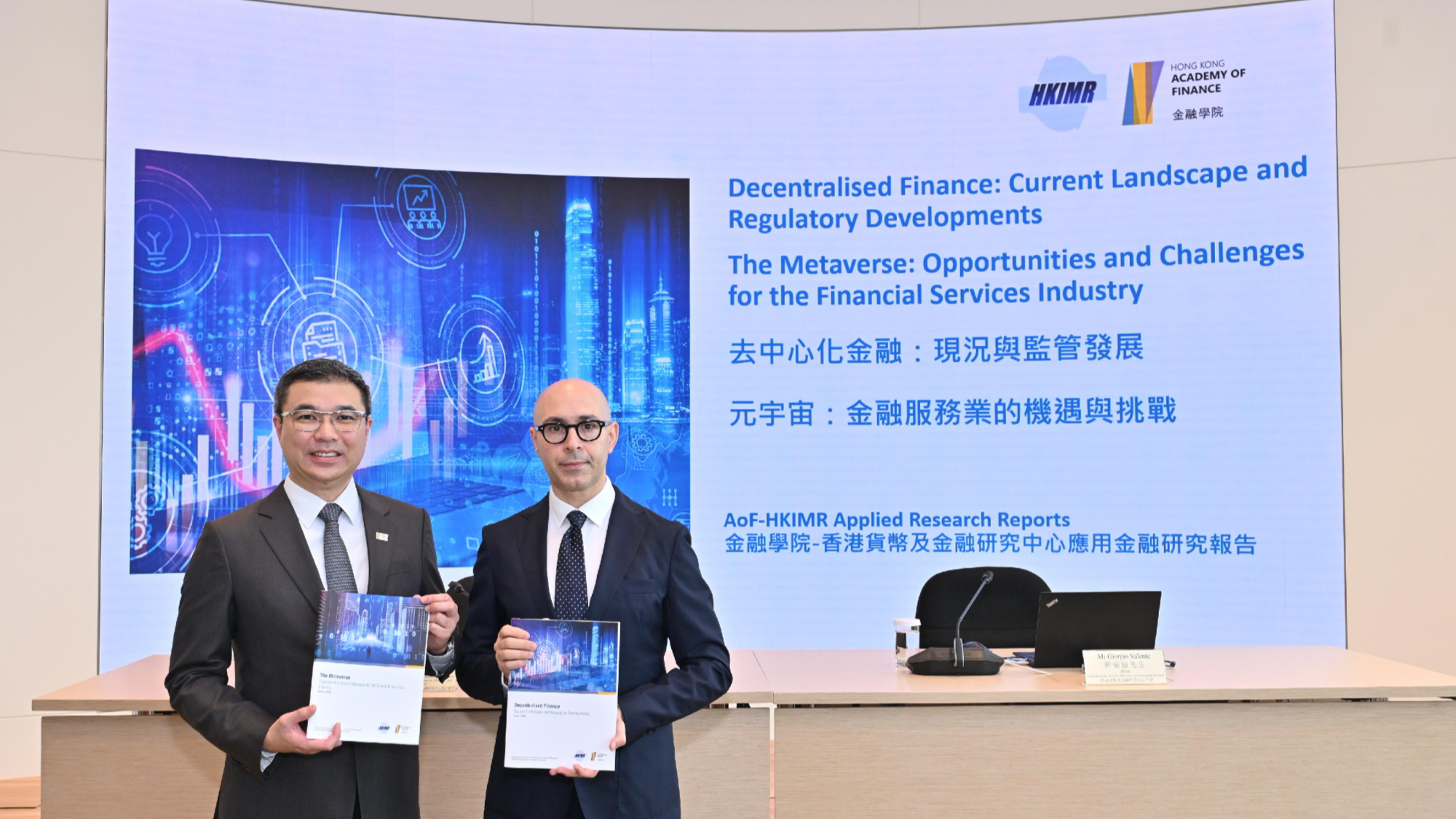
Financial regulators in Hong Kong will engage with overseas counterparts to share regulatory experiences in decentralized finance and the metaverse so that the city’s regulatory approach can come into line with international standards, Hong Kong Academy of Finance (AoF) Chief Executive Officer Enoch Fung said.
“Surveyed interviewees believe Hong Kong’s regulatory approach can promote the sustainable development of the virtual asset market, and the regulatory framework that Hong Kong uses can also complement the development of financial technology,” Fung added.
Regarding the metaverse, about 93 percent of the financial institutions demonstrated some knowledge of the metaverse, in the use of case scenarios such as marketing and promotion, internal operations, talent recruitment as well as workplace social events
The Hong Kong Institute for Monetary and Financial Research, the research arm of the AoF, on Tuesday released two reports on the current regulatory landscape and market opportunities on decentralized finance and the metaverse in Hong Kong, by interviewing financial institutions, virtual asset and metaverse service providers in the city.
READ MORE: Is HK really a ‘ruin of an international financial center’?
The survey showed 53 percent of respondents had included virtual assets or planned use cases of virtual assets in their business operations. Eighty-five percent of the interviewees expected virtual assets to be part of their core business operations in areas such as custodian, tokenization, payment as well as conversion and exchange solutions.
“Market participants view virtual assets as an avenue to create new revenue streams, reduce costs, enhance customer experiences, and provide diversification benefits in the long run,” Fung said.
Regarding the metaverse, about 93 percent of the financial institutions demonstrated some knowledge of the metaverse, in the use of case scenarios such as marketing and promotion, internal operations, talent recruitment as well as workplace social events.
READ MORE: Chan: HK a leader in Asia in green sustainable finance
About 65 percent of the respondents said they expected they will engage more metaverse application to enhance branding work, provide new and unique services, get more marketing channels and expand customer bases.
Fung said that surveyed financial institutions generally believe Hong Kong has a comprehensive and balanced regulatory framework in virtual assets development, with examples such as the commencement of a virtual asset trading platform licensing regime, the legislative proposal to implement the regulatory regime for stablecoin issuers, and the launch of public consultation on legislative proposal to regulate over-the-counter trading of virtual assets.
“Some of the key challenges involving virtual assets and the metaverse are the overall uncertainty regarding universal definitions and governance structures, and concerns about cybersecurity and data leakage risks,” Fung noted.


